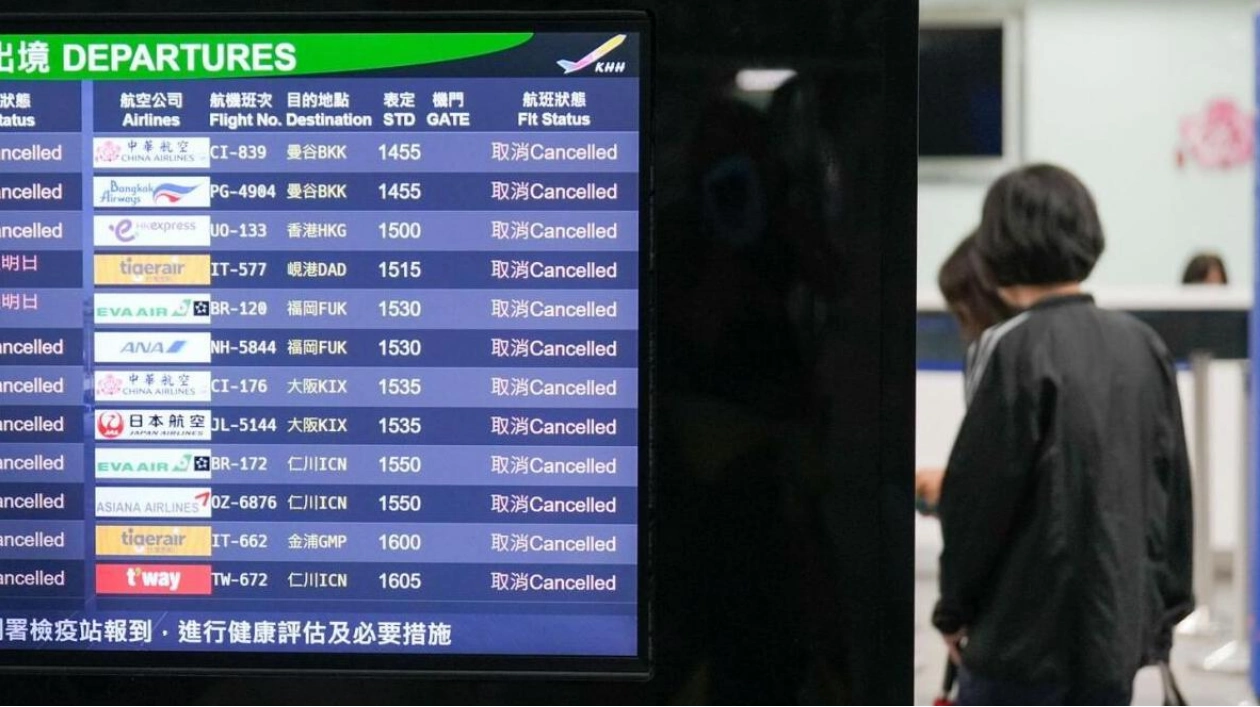Taiwan went into lockdown on Wednesday, with hundreds of flights grounded and schools, offices, and financial markets closed as Typhoon Krathon approached, weakening but still posing significant risks. One person has been reported dead, and heavy rain has already begun to batter the southern part of the island. Officials in Kaohsiung, a major port city expected to bear the brunt of the storm, urged residents to stay indoors and avoid the sea, rivers, and mountains, recalling the devastation caused by Typhoon Thelma in 1977, which killed 37 and left the city of 2.7 million in ruins.
Although Krathon has weakened, the threat of storm surges, strong winds, and heavy rain remains as it moves slowly toward Taiwan's coastline, according to weather forecasters. Kaohsiung Mayor Chen Chi-mai stated that once the typhoon makes landfall, it will likely lose power but will still bring intense winds and rain. "If it moves north, the winds will strengthen again, so the threat to Kaohsiung will persist, and people must not be complacent," he warned.
Once on land, the typhoon could be downgraded to a tropical depression and eventually dissipate, a scenario that has occurred only once before in Taiwan, in 2001. That storm, named Trami, caused extensive flooding after dumping large amounts of rain. The fire department reported one death, an elderly man in Hualien who fell from a tree, along with two missing persons and 70 injuries. On Wednesday, all cities and counties on the island declared a day off, shutting down financial markets and canceling both domestic and 246 international flights. Over 10,000 people were evacuated, primarily in the south and east.
In Taipei, some malls and shops remained open, with rain expected later in the day. Typhoons typically strike Taiwan's mountainous and less populated east coast, but Krathon is forecast to make landfall on the flat western plain. The Central Weather Administration (CWA) predicts the typhoon will hit between Kaohsiung and neighboring Tainan in the early hours of Thursday, then move northeast toward Taipei, the capital.
The typhoon has stirred memories of Thelma among the older generation, prompting extra precautions. Chou Yi-tang, a government official in Siaogang district, home to the airport, recalled the devastation almost five decades ago: "We were hit directly by the eyewall. Power was out for two weeks, and there was no water for almost a month. It was disastrous." Over 700 sandbags have been distributed in his district, a record for a typhoon, with authorities making more to meet demand. Taiwan's defense ministry has placed more than 38,000 troops on standby.
The north-south high-speed rail line remained open but scaled back services. TSMC, the world's largest contract chipmaker and a major supplier to Apple and Nvidia, stated on Tuesday that it does not expect the typhoon to significantly impact operations. TSMC's factories are located along the west coast, some in Tainan.






